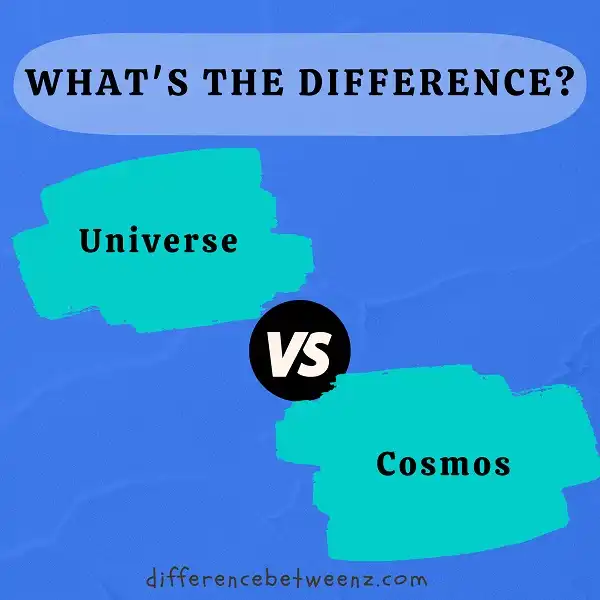Universe vs. Cosmos
What is Difference between Universe and Cosmos? The world we live in is vast, yet the vast majority of us are limited to living in a small portion of it; but still people are aware of the existence of other planets and galaxies, as well as many other things in the universe and the cosmos.
Difference between Universe and Cosmos
Cosmos
“Cosmos ” is defined as an ordered and harmonic set, a system that is governed not by human or supernatural laws, but by natural law. It is used to refer to naturally occurring objects, especially those that can be seen in the sky. The term “cosmos” has two connotations. It comes from the Greek word “kosmos”, which means “order, good order” or “ornaments”.
This term was first used by Pythagoras, a Greek philosopher of the sixth century. Mathematician who discovered the Theorem that bears his name and founder of the philosophical-religious movement known as Pythagoreans.
Universe
On the other hand, “universe ” is defined as everything that exists and includes all matter and energy, earth, and all that it contains, along with extraterrestrial or celestial bodies like galaxies, stars, meteorites … “It is everything that existed exists and will exist. ” It has the following elements, namely; space, time, emptiness (this is in discussion), matter and energy.
The concept of universe was developed by the ancient Greeks; this term comes from the Latin word “universes”, which means “all together or integrated”, which was first used by Cicero.
The words “cosmos” and “universe” are used as synonyms, since they refer to the same concept that is the world or nature. But the concept of cosmos is broader and involves more elements than the universe.
Key Differences between Cosmos and Universe
- The cosmos is a system or ordered set that is governed by natural law, while the universe encompasses everything that exists and is known until now.
- The concept of cosmos is more encompassing than that of the universe.


